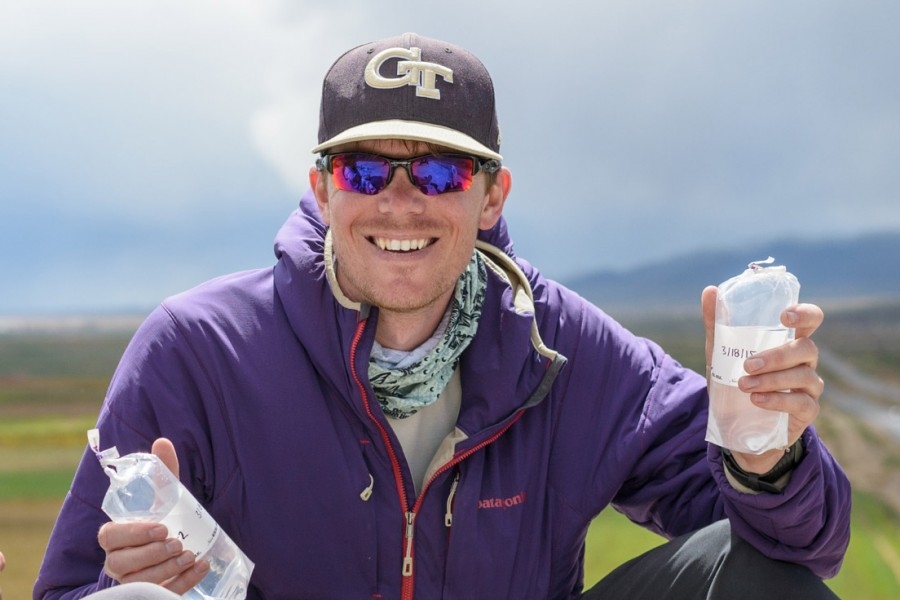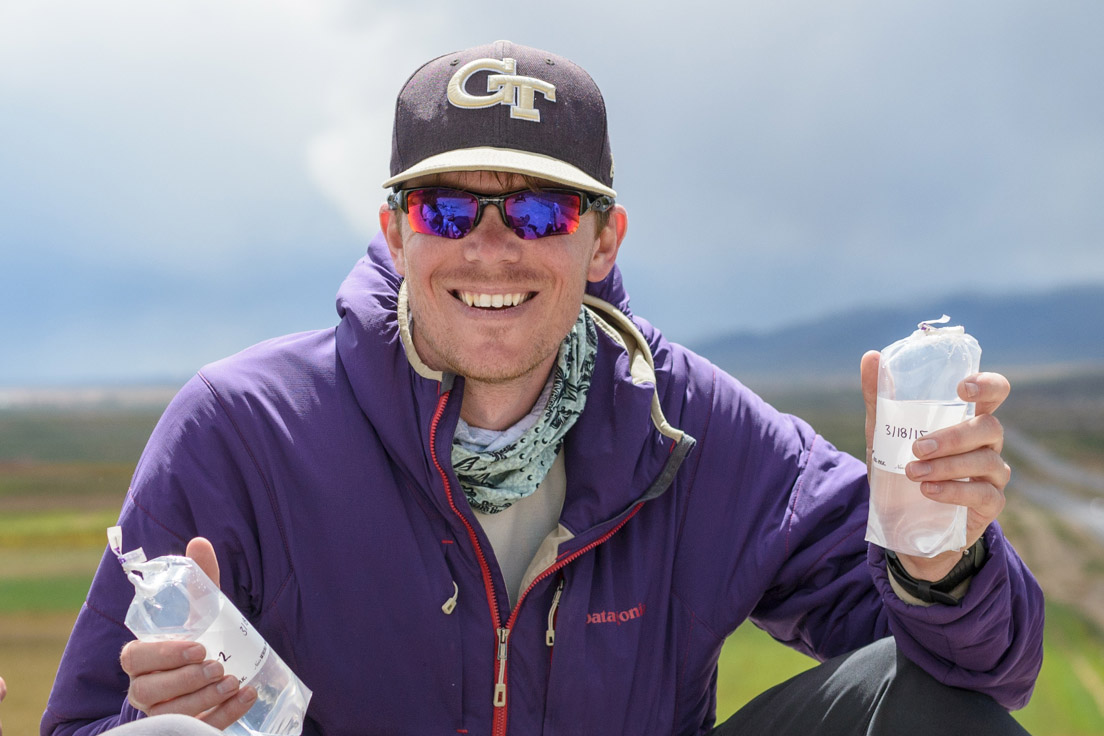
 Photo: Lorenzo Tolentino |
By almost any measure, Aaron Bivins’ spring was a successful one.
First, he learned in early April he won a grant from the Fulbright program to work for nearly a year in India. Now comes word that the School of Civil and Environmental Engineering Ph.D. student also will get support from the U.S. Environmental Protection Agency for work closer to home.
Bivins is among the graduate students to receive a 2016 STAR graduate fellowship from the agency. The Science to Achieve Results program supports students in environmental studies for up to three years. In Bivins’ case, it will pay for research on the deficiencies of water supplies in rural Alabama.
“When we consider the challenges of delivering clean drinking water, we are often tempted to think of places like India,” Bivins said, “but the crisis in Flint, Michigan, has shown us that even here in the United States, reliably safe drinking water is only secured through proper management of our infrastructure. The funding of my domestic water quality research demonstrates our society's recognition of these challenges and commitment to solving them.”
Bivins said his study in Alabama complements the research he’ll do in India over the next year through his Fulbright grant.
“In India I will be looking at how interrupted water service affects water quality. My EPA STAR Fellowship funds research that will examine how deficiencies in water supplies in rural Alabama affect the quality of drinking water in those communities,” Bivins said. “In both these instances I will be using the water quality data I collect to estimate human health impacts.”
Bivins, who is in his third year of doctoral studies with Assistant Professor Joe Brown, said he hopes the influx of support for his work this spring reflects the effort he has made to learn how to share what he’s doing and why it matters.
“The real struggle is to communicate the value of your work in a way that is compelling to people who aren't necessarily experts in your field,” Bivins said. “I've taken full advantage of the resources here in CEE, including coursework from Dr. Lisa Rosenstein, to hone my writing skills. I hope my recent success with the Fulbright and EPA STAR Fellowship reflects that I'm learning and growing as a communicator.”
Bivins said he’s looking forward to doing even more communicating in the coming years as an EPA fellow, which will allow him to present his work at conferences and network with other water quality experts. He’s also planning to use some of the grant money to buy some of the research tools on his wish list.
“I've had so many interesting conversations with my friends and family lately about the safety of our drinking water following the Flint crisis. This demonstrates that one of the things we are learning right now is that just building infrastructure doesn't guarantee the safety of our drinking water,” Bivins said.
“My work gets at the heart of this matter by exploring the dynamic relationships between the design of water distribution systems, drinking water quality, and public health.”
